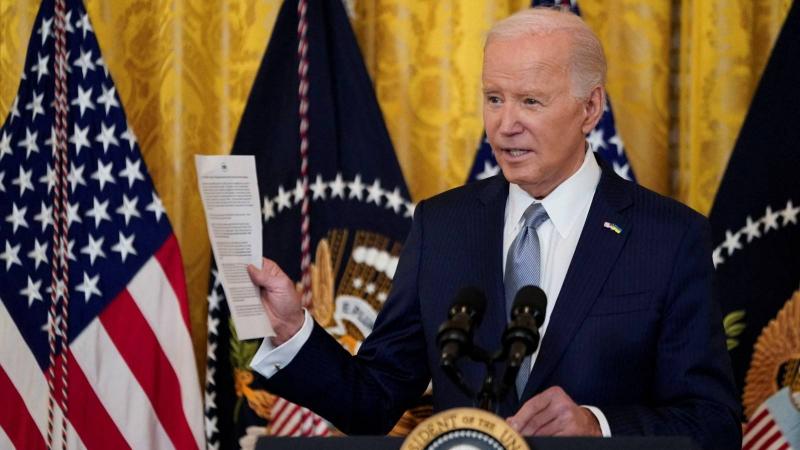U.S. President Joe Biden expressed hope for a ceasefire in Gaza to be implemented by next week, specifically by March 4. During a visit to New York, when asked about the potential timing for a ceasefire between Israel and Hamas, Biden responded that "my national security advisors tell me we are close, we are close, and we are not done yet. I hope that by next Monday there will be a ceasefire."
He mentioned that Israel had agreed not to carry out military activities in the Gaza Strip during Ramadan, warning that Israel risks losing support from the rest of the world as the Palestinian death toll continues to rise significantly. Biden further stated in an interview with NBC that Israel committed to allowing Palestinians to evacuate from Rafah in southern Gaza before intensifying its campaign to destroy Hamas there.
He noted that there is a principle agreement on a ceasefire between the sides during the hostage release process. "Ramadan is approaching, and there was an agreement among Israelis to refrain from any activities during Ramadan, to give us time to free all the hostages," he said. Biden considered that a temporary ceasefire would contribute to improving relations with Israel's neighboring countries and strengthening the process towards establishing an independent Palestinian state. "This will give us time to make progress in relations with Arab states willing to cooperate. For example, Saudi Arabia is ready to recognize the state of Israel."
He continued, "If we succeed in implementing the temporary ceasefire, we will be able to move in a direction that allows us to change the situation. The two-state solution will not be implemented immediately, but there will be a process to reach a two-state solution and ensure Israel's security and Palestinian independence."
Biden, a Democrat seeking a second presidential term, has faced declining support among young Americans and progressive voters due to his strong backing of Israel amid rising civilian Palestinian casualties. Mediating countries, including Qatar, Egypt, and the United States, are attempting to negotiate a settlement between Israel and Hamas to achieve a truce.
In this context, U.S. Secretary of State Antony Blinken emphasized during a phone call with his Jordanian counterpart Ayman Safadi the U.S. commitment to achieving sustainable peace through the establishment of an independent Palestinian state while ensuring Israel's security. U.S. State Department spokesperson Matthew Miller stated that Blinken reiterated the importance of preventing the conflict between Israel and Hamas from escalating further, particularly ahead of Ramadan. Blinken also stressed that there should be no forced displacement of Palestinians from Gaza or the West Bank. Additionally, he discussed ongoing U.S. efforts to pressure Israel to stop settler violence against Palestinians in the West Bank during his call with Safadi.




